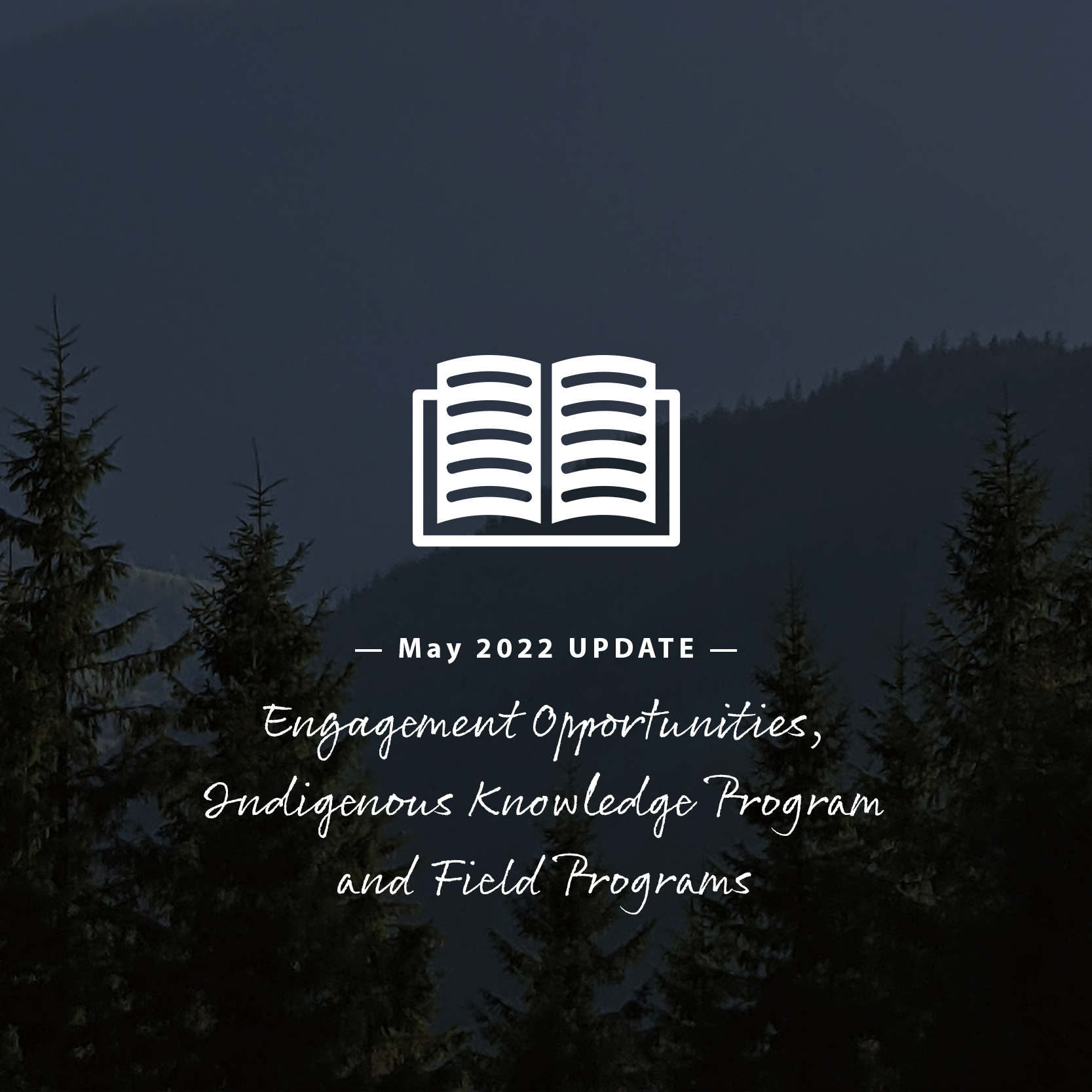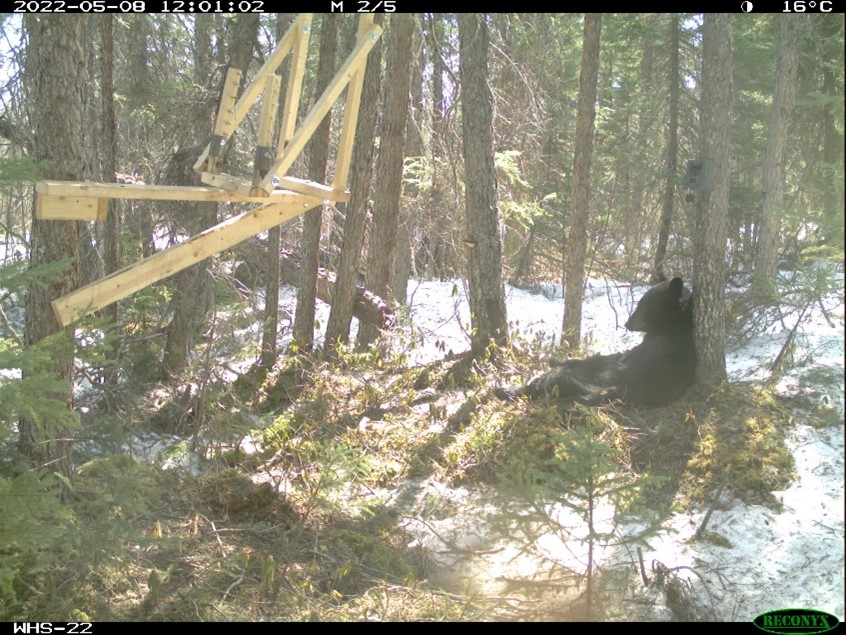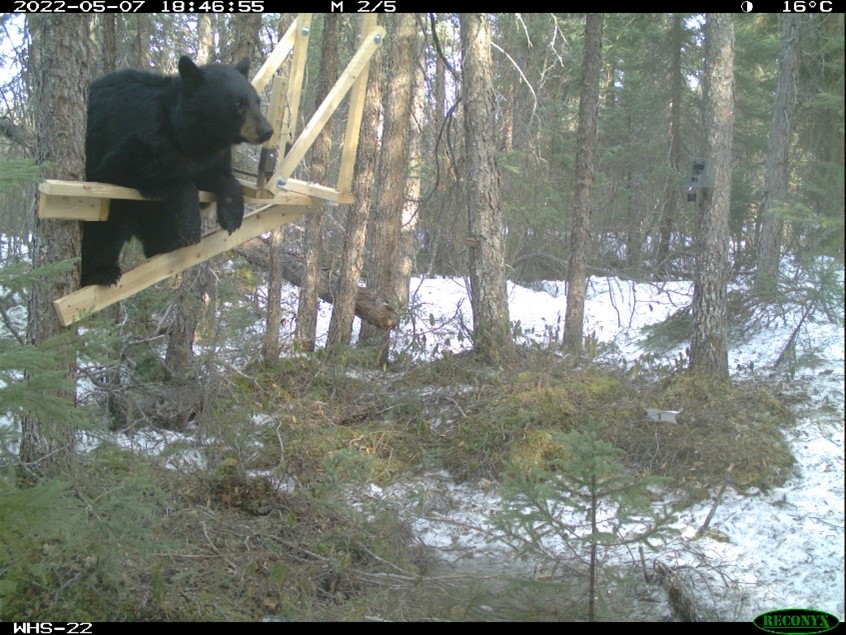Marten Falls First Nation (MFFN) Community Access Road
May 2022 update
Current and upcoming activities
Welcome to the Marten Falls First Nation (MFFN) Community Access Road May E-Blast with updates on current and upcoming activities. This E-Blast features:

Meet with us in-person this summer!
We are excited to share two upcoming in-person engagement opportunities:
- Upcoming Public Information Centre: A Public Information Centre for the Environmental Assessment / Impact Statement Phase #1 Introduction is being planned for late June 2022. This will be an opportunity to meet the team in Thunder Bay and Geraldton, learn more about the planning process and share your feedback, ideas and values related to the proposed all season access road. Stay tuned for more details or visit https://www.martenfallsaccessroad.ca/get-involved/
- Prospectors & Developers Association of Canada (PDAC): The Community Access Road will no longer be at the Prospectors & Developers Association of Canada (PDAC) Conference in Toronto, however Marten Falls First Nation and Webequie First Nation will be there for the Northern Road Link from June 14-15 in Room 202D.
Indigenous Knowledge Program – Submission Deadline Reminder
A reminder that the submission deadline for Indigenous Knowledge Program Studies to inform the environmental assessment processes is June 30, 2022. The Indigenous Knowledge Program is collecting relevant information on Indigenous land and resource use and important cultural values in and around the proposed Community Access Road study area. Over the fall and winter, inputs from each Indigenous community will be discussed and included in the assessment. More details on the Indigenous Knowledge Program are available on the website.
Field Study Updates
Due to high water levels the caribou mortality investigation was not completed in May and will be included in an upcoming June field program.
Visitors continue to explore the wolverine hair snag traps, this month we saw a curious a black bear investigating the structure.


Upcoming Field Studies
Our field crews are very busy in the upcoming months! There are a lot of moving parts when scheduling field programs, including the spring melt, accommodations, weather and on-going monitoring of COVID-19 situations. We appreciate your understanding as timelines shift.
Our field studies will be strengthened by the Indigenous Knowledge shared with us by MFFN and neighbouring Indigenous communities through the Indigenous Knowledge Program. In addition, study-specific Discussion Guides have been distributed to our contact list in advance of field programs to provide information about what the study or program is and why it’s important to the Community Access Road. Your input is important, and we want to make it easy for you to provide it! Discussion Guides provide an opportunity to shape the program through your input, including sharing any Aboriginal and Treaty Rights and Interests in the area. If you have ideas on ways to make it easier for you to have a say, please let us know. We are all ears!
Below is a high-level overview of upcoming field study programs and their approximate timelines*
- Physiography, Terrain and Soils Program (May 28 - June 6, 2022): This field program will collect information on geologic features and soil conditions including moisture and nutrient levels. This information is important to better understand the current conditions and relationship between the soil and the ecosystems that depend on it, including plants that grow in the forest or wetlands (asabi’biiya or asabi’gama). Our collection approach helps limit disturbances in the area. View the field notice distributed earlier this month.
- Wolverine Hair Snag Surveys (June 1 - 11, 2022): Hair snag traps were placed in the study area in February 2022 to provide information about wolverine (wishkobishag) demographics (male / female). Crews will be removing the hair snag traps in June 2022. This field program will continue in 2023. Learn more about wolverines in our video here.
- Breeding Bird Point Counts, Marsh Playback Surveys and Eastern Whip-poor-will Autonomous Recording Units (June 1 - 13 and July 2022): Skilled observers will use three survey methods to identify birds, including marsh birds, breeding birds and the Eastern Whip-poor-will (a Species at Risk), by sight and sound. Read the Discussion Guide and share your feedback.
- Caribou (atik) Collaring Mortality Investigation (June and Fall 2022, and as needed): In February 2021, 30 radio collars were placed on adult female caribou (atik) to collect data over three years. Mortality investigations will look into collared caribou that have not moved in 12 hours, to assess their cause of mortality (e.g., predation, hunter, poor health, natural causes). Mortality investigations will continue to be conducted as needed. Learn more about ungulates, including caribou, in our video here.
- Breeding Bird Aerial Surveys (June 2022): Similar to Aerial Waterfowl Migration Surveys, these aerial surveys will focus on waterfowl and raptor nesting in the breeding season (and does not include shorebirds). Read the Discussion Guide and share your feedback.
- Surface Water and Fish and Fish Habitat Program (mid-June 2022): Field crews will collect information on surface water (e.g., lakes, rivers, streams) quantity and quality, sediment quality (e.g., sand, silt, clay) and benthic invertebrates (organisms that live at the bottom of lakes, rivers and streams). This work will be taking place at water crossings along both of the route alternatives being studied. Additional fishing effort and fish habitat information may also be collected in spring. Learn more about surface water and fish and fish habitat in our video and Discussion Guide here.
- Air Monitoring Program (Summer 2022): Following data collection of current air quality over one year, the air monitoring program will be wrapping up with technicians decommissioning and removing air monitoring equipment in MFFN.
- Vegetation Program (mid-July 2022): Vegetation plots will be set up to collect samples and record to verify mapping of vegetation information for the area. Learn more about vegetation in our video and Discussion Guide here.
- Bird Autonomous Recording Units (Summer / Fall 2022): Autonomous Recording Units (ARU) were deployed throughout the study area in early spring to collect spring migration audio data. The ARUs will be left in place for the rest of 2022 to record through fall migration and early winter. This program will provide valuable data in detecting rare bird species. Deployed ARUs will be collected in winter 2023. Read the Discussion Guide and share your feedback.
- Ungulate Remote Camera Check (Summer and Fall 2022): Field crews will return to remote cameras deployed in June 2021 to inspect cameras and replace batteries and memory cards. This program will continue into 2023. Learn more about ungulates in our video here.
*Timelines and programs are approximate and may shift; we will provide updates as required.
If you have any questions, comments or feedback on the planned studies, we would like to hear from you (contact information below).
Meet With Us!
Please contact us at any time with questions or comments, or to schedule a meeting. Meetings can be arranged in-person in any community (adhering to health and safety protocols as required), in the Thunder Bay area, or remotely. We want to hear what you have to say.
Questions or comments? Contact us at 1-800-764-9114 or info@martenfallsaccessroad.ca.
Follow us on Facebook: https://www.facebook.com/MFFNCommunityAccessRoadProject/
